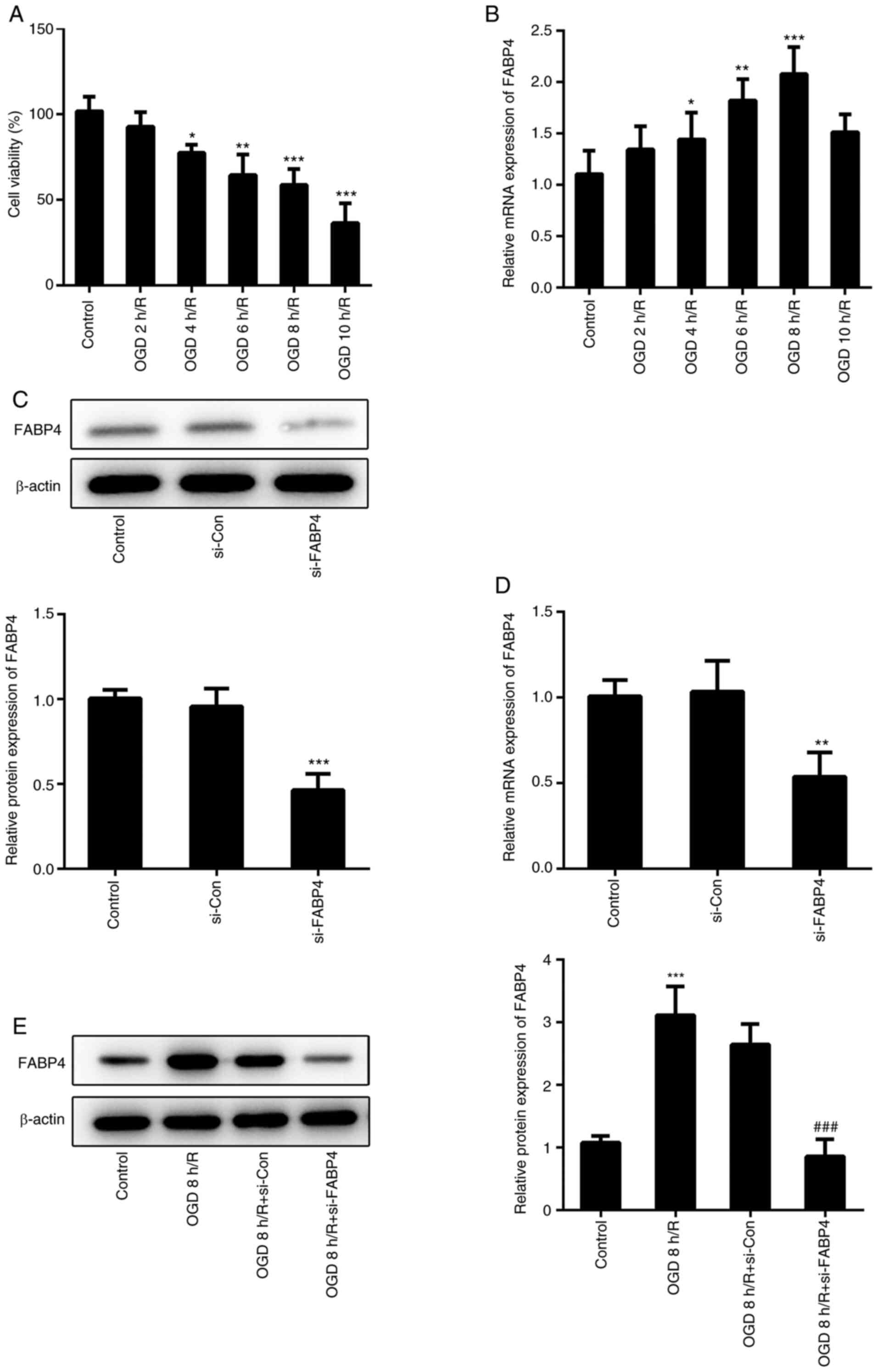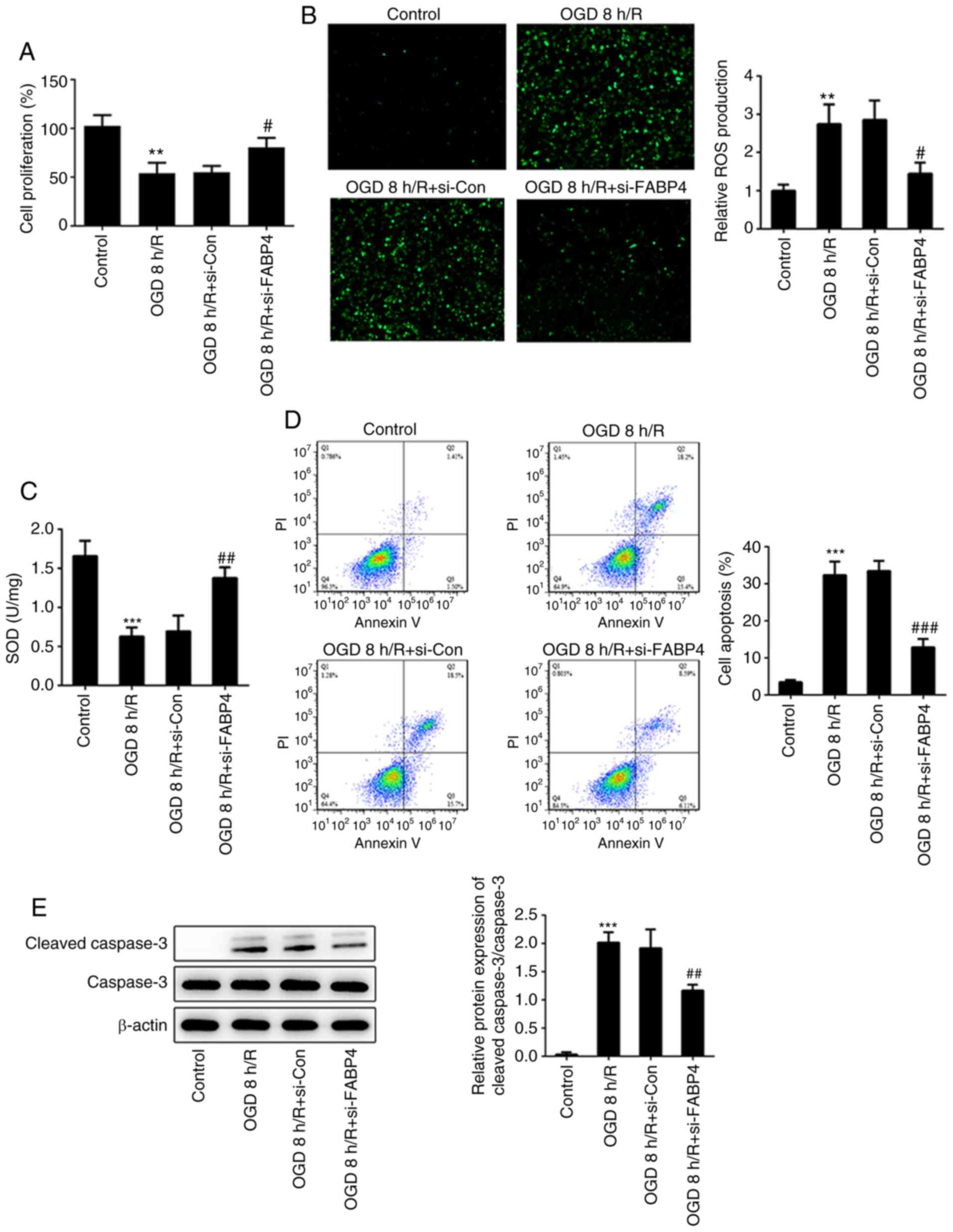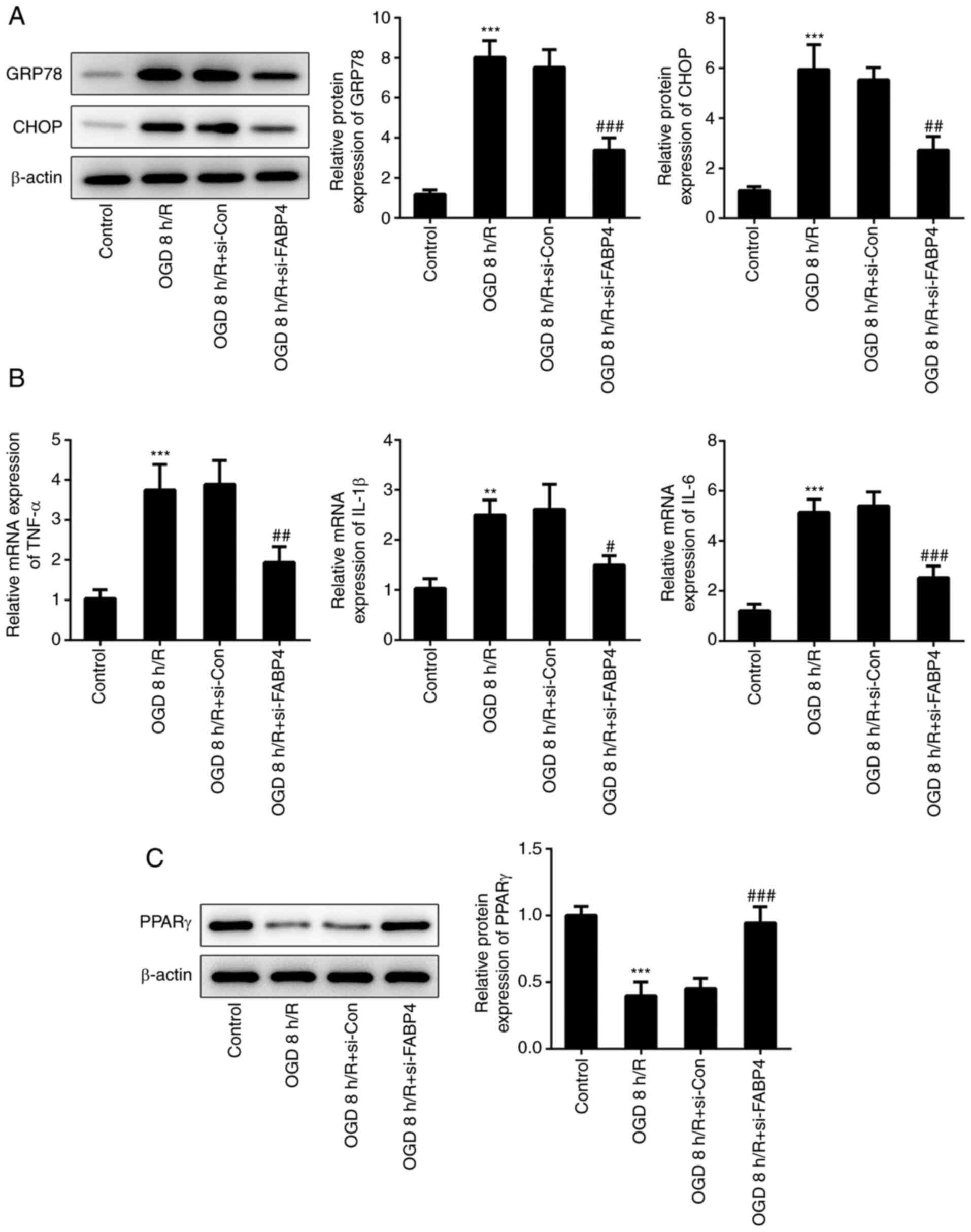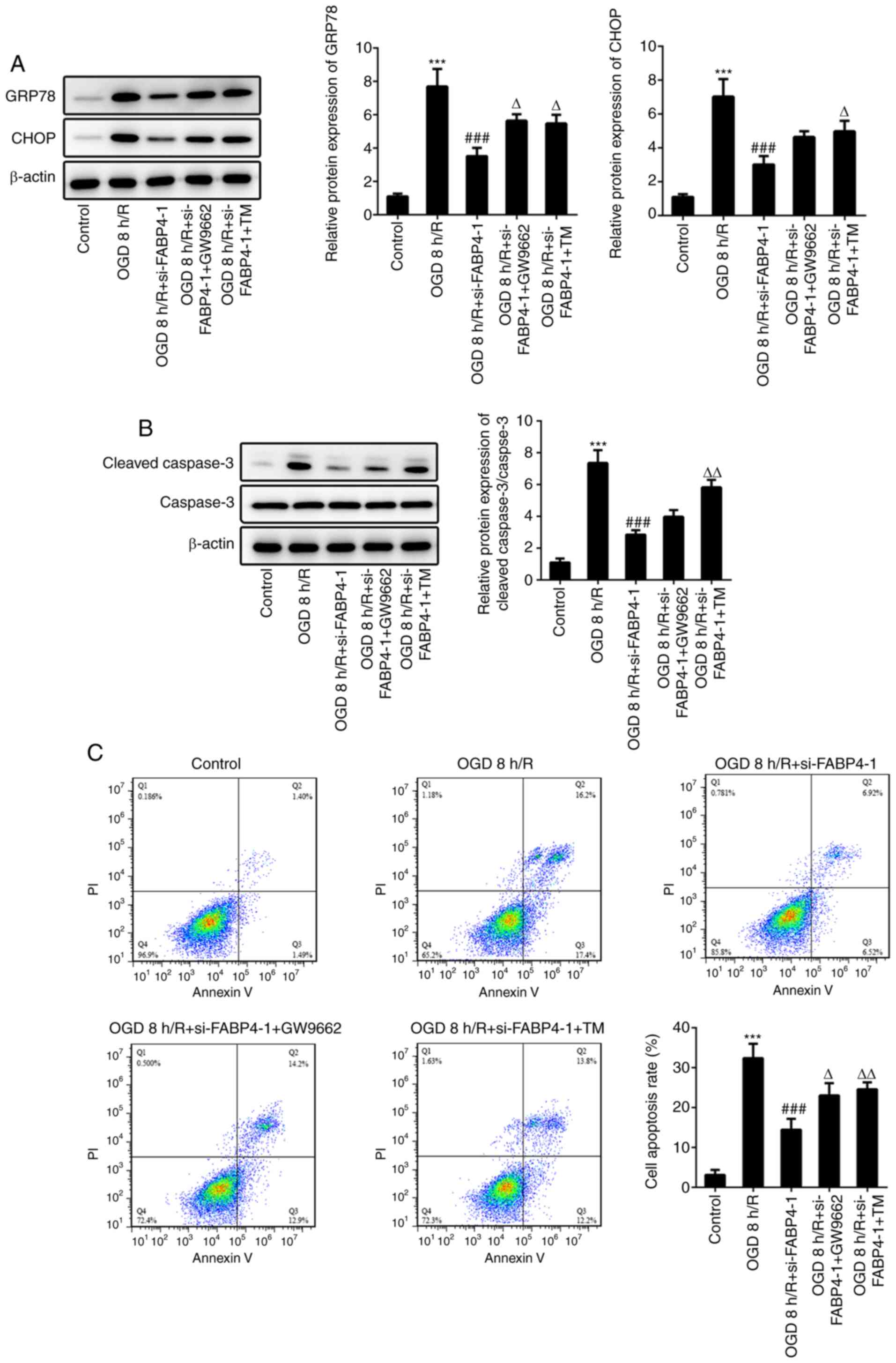|
1
|
Khoshnam SE, Winlow W, Farzaneh M, Farbood
Y and Moghaddam HF: Pathogenic mechanisms following ischemic
stroke. Neurol Sci. 38:1167–1186. 2017.PubMed/NCBI View Article : Google Scholar
|
|
2
|
Siniscalchi A, Gallelli L, Malferrari G,
Pirritano D, Serra R, Santangelo E and De Sarro G: Cerebral stroke
injury: The role of cytokines and brain inflammation. J Basic Clin
Physiol Pharmacol. 25:131–137. 2014.PubMed/NCBI View Article : Google Scholar
|
|
3
|
Tobin MK, Bonds JA, Minshall RD,
Pelligrino DA, Testai FD and Lazarov O: Neurogenesis and
inflammation after ischemic stroke: What is known and where we go
from here. J Cereb Blood Flow Metab. 34:1573–1584. 2014.PubMed/NCBI View Article : Google Scholar
|
|
4
|
Kim JY, Kawabori M and Yenari MA: Innate
inflammatory responses in stroke: Mechanisms and potential
therapeutic targets. Curr Medb Chem. 21:2076–2097. 2014.PubMed/NCBI View Article : Google Scholar
|
|
5
|
Blakeley JO and Llinas RH: Thrombolytic
therapy for acute ischemic stroke. J Neurol Sci. 261:55–62.
2007.PubMed/NCBI View Article : Google Scholar
|
|
6
|
Fu Y, Liu Q, Anrather J and Shi FD: Immune
interventions in stroke. Nat Rev Neurol. 11:524–535.
2015.PubMed/NCBI View Article : Google Scholar
|
|
7
|
Danton GH and Dietrich WD: Inflammatory
mechanisms after ischemia and stroke. J Neuropathol Exp Neurol.
62:127–136. 2003.PubMed/NCBI View Article : Google Scholar
|
|
8
|
Bogdan D, Falcone J, Kanjiya MP, Park SH,
Carbonetti G, Studholme K, Gomez M, Lu Y, Elmes MW, Smietalo N, et
al: Fatty acid-binding protein 5 controls microsomal prostaglandin
E synthase 1 (mPGES-1) induction during inflammation. J Biol Chem.
293:5295–5306. 2018.PubMed/NCBI View Article : Google Scholar
|
|
9
|
Yu CW, Liang X, Lipsky S, Karaaslan C,
Kozakewich H, Hotamisligil GS, Bischoff J and Cataltepe S: Dual
role of fatty acid-binding protein 5 on endothelial cell fate: A
potential link between lipid metabolism and angiogenic responses.
Angiogenesis. 19:95–106. 2016.PubMed/NCBI View Article : Google Scholar
|
|
10
|
Rodriguez Sawicki L, Bottasso Arias NM,
Scaglia N, Falomir Lockhart LJ, Franchini GR, Storch J and Córsico
B: FABP1 knockdown in human enterocytes impairs proliferation and
alters lipid metabolism. Biochim Biophys Acta Mol Cell Biol Lipids.
1862:1587–1594. 2017.PubMed/NCBI View Article : Google Scholar
|
|
11
|
Hotamisligil GS and Bernlohr DA: Metabolic
functions of FABPs-mechanisms and therapeutic implications. Nat Rev
Endocrinol. 11:592–605. 2015.PubMed/NCBI View Article : Google Scholar
|
|
12
|
Chen Y, Gao H, Yin Q, Chen L, Dong P,
Zhang X and Kang J: ER stress activating ATF4/CHOP-TNF-α signaling
pathway contributes to alcohol-induced disruption of osteogenic
lineage of multipotential mesenchymal stem cell. Cell Physiol
Biochem. 32:743–754. 2013.PubMed/NCBI View Article : Google Scholar
|
|
13
|
Shi M, Huang R, Guo F, Li L, Feng Y, Wei
Z, Zhou L, Ma L and Fu P: Pharmacological inhibition of fatty
acid-binding protein 4 (FABP4) protects against renal
ischemia-reperfusion injury. Rsc Advances. 8:15207–15214.
2018.PubMed/NCBI View Article : Google Scholar
|
|
14
|
Hu B, Guo Y, Garbacz WG, Jiang M, Xu M,
Huang H, Tsung A, Billiar TR, Ramakrishnan SK, Shah YM, et al:
Fatty acid binding protein-4 (FABP4) is a hypoxia inducible gene
that sensitizes mice to liver ischemia/reperfusion injury. J
Hepatol. 63:855–862. 2015.PubMed/NCBI View Article : Google Scholar
|
|
15
|
Holm S, Ueland T, Dahl TB, Michelsen AE,
Skjelland M, Russell D, Nymo SH, Krohg-Sørensen K, Clausen OP, Atar
D, et al: Fatty acid binding protein 4 is associated with carotid
atherosclerosis and outcome in patients with acute ischemic stroke.
PLoS One. 6(e28785)2011.PubMed/NCBI View Article : Google Scholar
|
|
16
|
Li TF, Ma J, Han XW, Jia YX, Yuan HF, Shui
SF, Guo D and Yan L: Chrysin ameliorates cerebral
ischemia/reperfusion (I/R) injury in rats by regulating the
PI3K/Akt/mTOR pathway. Neurochem Int. 129(104496)2019.PubMed/NCBI View Article : Google Scholar
|
|
17
|
Jiang D, Sun X, Wang S and Man H:
Upregulation of miR-874-3p decreases cerebral ischemia/reperfusion
injury by directly targeting BMF and BCL2L13. Biomed Pharmacother.
117(108941)2019.PubMed/NCBI View Article : Google Scholar
|
|
18
|
Whiley H and Taylor M: Legionella
detection by culture and qPCR: Comparing apples and oranges. Crit
Rev Microbiol. 42:65–74. 2016.PubMed/NCBI View Article : Google Scholar
|
|
19
|
Zhang HF, Li TB, Liu B, Lou Z, Zhang JJ,
Peng JJ, Zhang XJ, Ma QL, Peng J and Luo XJ: Inhibition of myosin
light chain kinase reduces NADPH oxidase-mediated oxidative injury
in rat brain following cerebral ischemia/reperfusion. Naunyn
Schmiedebergs Arch Pharmacol. 388:953–963. 2015.PubMed/NCBI View Article : Google Scholar
|
|
20
|
Tan Z, Guo F, Huang Z, Xia Z, Liu J, Tao
S, Li L, Feng Y, Du X, Ma L and Fu P: Pharmacological and genetic
inhibition of fatty acid-binding protein 4 alleviated
cisplatin-induced acute kidney injury. J Cell Mol Med.
23:6260–6270. 2019.PubMed/NCBI View Article : Google Scholar
|
|
21
|
Yang W and Paschen W: Unfolded protein
response in brain ischemia: A timely update. J Cereb Blood Flow
Metab. 36:2044–2050. 2016.PubMed/NCBI View Article : Google Scholar
|
|
22
|
Chen Y, Liu S and Chen G: Aggravation of
cerebral ischemia/reperfusion injury by peroxisome
proliferator-activated receptor-gamma deficiency via endoplasmic
reticulum stress. Med Sci Monit. 25:7518–7526. 2019.PubMed/NCBI View Article : Google Scholar
|
|
23
|
Deng T, Wang Y, Wang C and Yan H: FABP4
silencing ameliorates hypoxia reoxygenation injury through the
attenuation of endoplasmic reticulum stress-mediated apoptosis by
activating PI3K/Akt pathway. Life Sci. 224:149–156. 2019.PubMed/NCBI View Article : Google Scholar
|
|
24
|
Wu L, Xiong X, Wu X, Ye Y, Jian Z, Zhi Z
and Gu L: Targeting oxidative stress and inflammation to prevent
ischemia-reperfusion injury. Front Mol Neurosci.
13(28)2020.PubMed/NCBI View Article : Google Scholar
|
|
25
|
Bosquet A, Guaita-Esteruelas S, Saavedra
P, et al: Exogenous FABP4 induces endoplasmic reticulum stress in
HepG2 liver cells. Atherosclerosis. 249:191–199. 2016.PubMed/NCBI View Article : Google Scholar
|
|
26
|
Bosquet A, Girona J, Guaita-Esteruelas S,
et al: FABP4 inhibitor BMS309403 decreases
saturated-fatty-acid-induced endoplasmic reticulum
stress-associated inflammation in skeletal muscle by reducing p38
MAPK activation. Biochimica et biophysica acta. Molecular and cell
biology of lipids. 1863:604–613. 2018.PubMed/NCBI View Article : Google Scholar
|
|
27
|
Qiao Y, Liu L, Yin L, Xu L, Tang Z, Qi Y,
Mao Z, Zhao Y, Ma X and Peng J: FABP4 contributes to renal
interstitial fibrosis via mediating inflammation and lipid
metabolism. Cell Death Dis. 10(382)2019.PubMed/NCBI View Article : Google Scholar
|


















